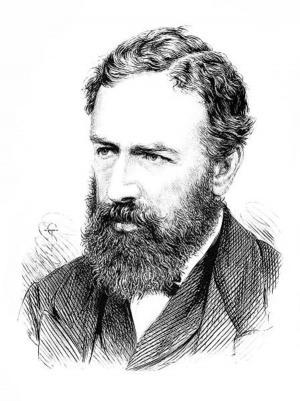Principles of Judicial Procedure (Illustrated)
Business & Finance, Economics, Macroeconomics, Theory of Economics| Author: | Jeremy Bentham, Timeless Books: Editor | ISBN: | 1230000470063 |
| Publisher: | www.WealthOfNation.com | Publication: | June 5, 2015 |
| Imprint: | Language: | English |
| Author: | Jeremy Bentham, Timeless Books: Editor |
| ISBN: | 1230000470063 |
| Publisher: | www.WealthOfNation.com |
| Publication: | June 5, 2015 |
| Imprint: | |
| Language: | English |
The book has an active table of contents for easy access to each chapter.
Jeremy Bentham was a British philosopher, jurist, social reformer and the founder of modern utilitarianism. He is in the row with the greatest thinkers Adam Smith, John Stuart Mill, John Keynes, John Locke, and Alfred Marshall. Their thoughts had strong influence on building the foundation of the United States and its endeavor of open society.
Jeremy Bentham invented the axiom of the greatest happiness of the greatest number. His writings emphasised the pursuit of happiness and freedom and became popular in the new republics of America and the other counties.
The book Principles of Judicial Procedure is Jeremy Bentham’s answer to “Absolute power corrupts absolutely”. Jeremy Bentham argued in quite unequivocal terms that the abuses found in the system of procedure in England was due to the partnership of judges and lawyers for their own financial benefit. His assault on the legal profession was quite extraordinary. Even in the published text itself he accused lawyers and judges of fundamentally self-interested and frequently self-conscious. His major contribution to judicial procedure provided the legal foundation for UK and the United States.
Jeremy Bentham’s work produced great influence on utilitarianism, philosophy, jurist, and economics. His influence has been felt in nearly every field of the humanities and social sciences.
This book is one of the most important ones about the deepest thoughts of judicial procedure and a great legal system by Jeremy Bentham, one of the greatest thinkers of modern economics and philosophy on the planet.
The book has an active table of contents for easy access to each chapter.
Jeremy Bentham was a British philosopher, jurist, social reformer and the founder of modern utilitarianism. He is in the row with the greatest thinkers Adam Smith, John Stuart Mill, John Keynes, John Locke, and Alfred Marshall. Their thoughts had strong influence on building the foundation of the United States and its endeavor of open society.
Jeremy Bentham invented the axiom of the greatest happiness of the greatest number. His writings emphasised the pursuit of happiness and freedom and became popular in the new republics of America and the other counties.
The book Principles of Judicial Procedure is Jeremy Bentham’s answer to “Absolute power corrupts absolutely”. Jeremy Bentham argued in quite unequivocal terms that the abuses found in the system of procedure in England was due to the partnership of judges and lawyers for their own financial benefit. His assault on the legal profession was quite extraordinary. Even in the published text itself he accused lawyers and judges of fundamentally self-interested and frequently self-conscious. His major contribution to judicial procedure provided the legal foundation for UK and the United States.
Jeremy Bentham’s work produced great influence on utilitarianism, philosophy, jurist, and economics. His influence has been felt in nearly every field of the humanities and social sciences.
This book is one of the most important ones about the deepest thoughts of judicial procedure and a great legal system by Jeremy Bentham, one of the greatest thinkers of modern economics and philosophy on the planet.















